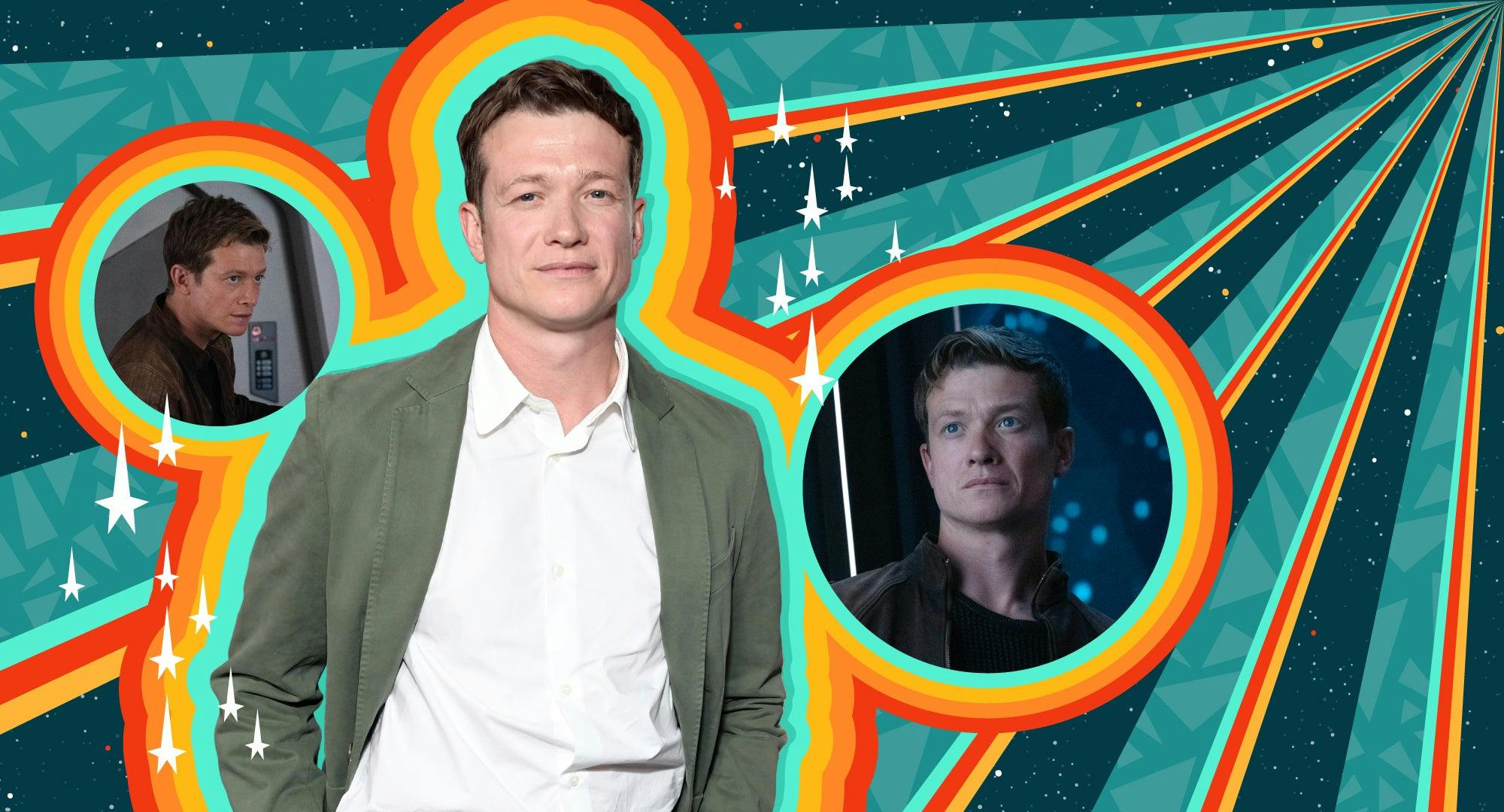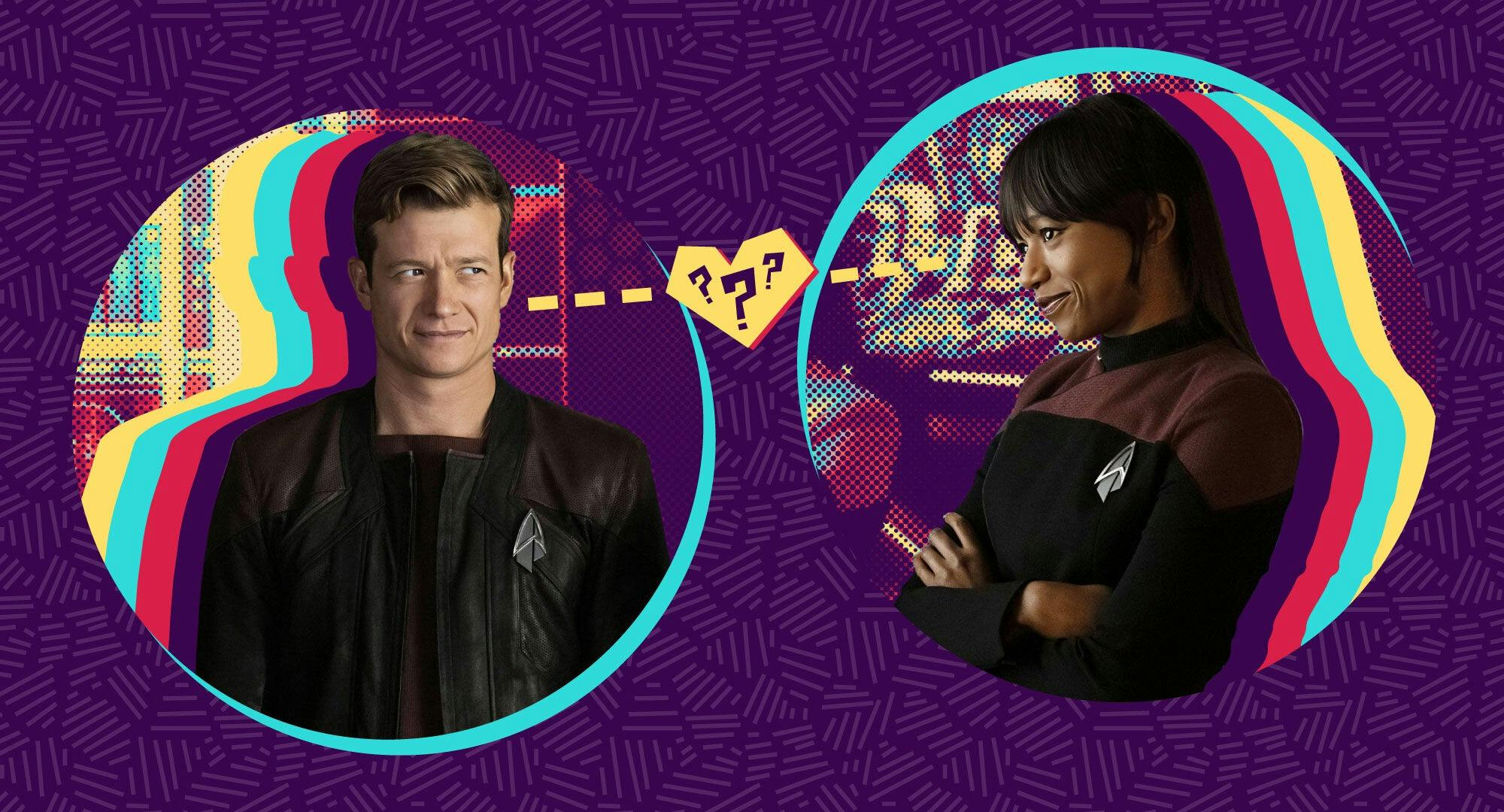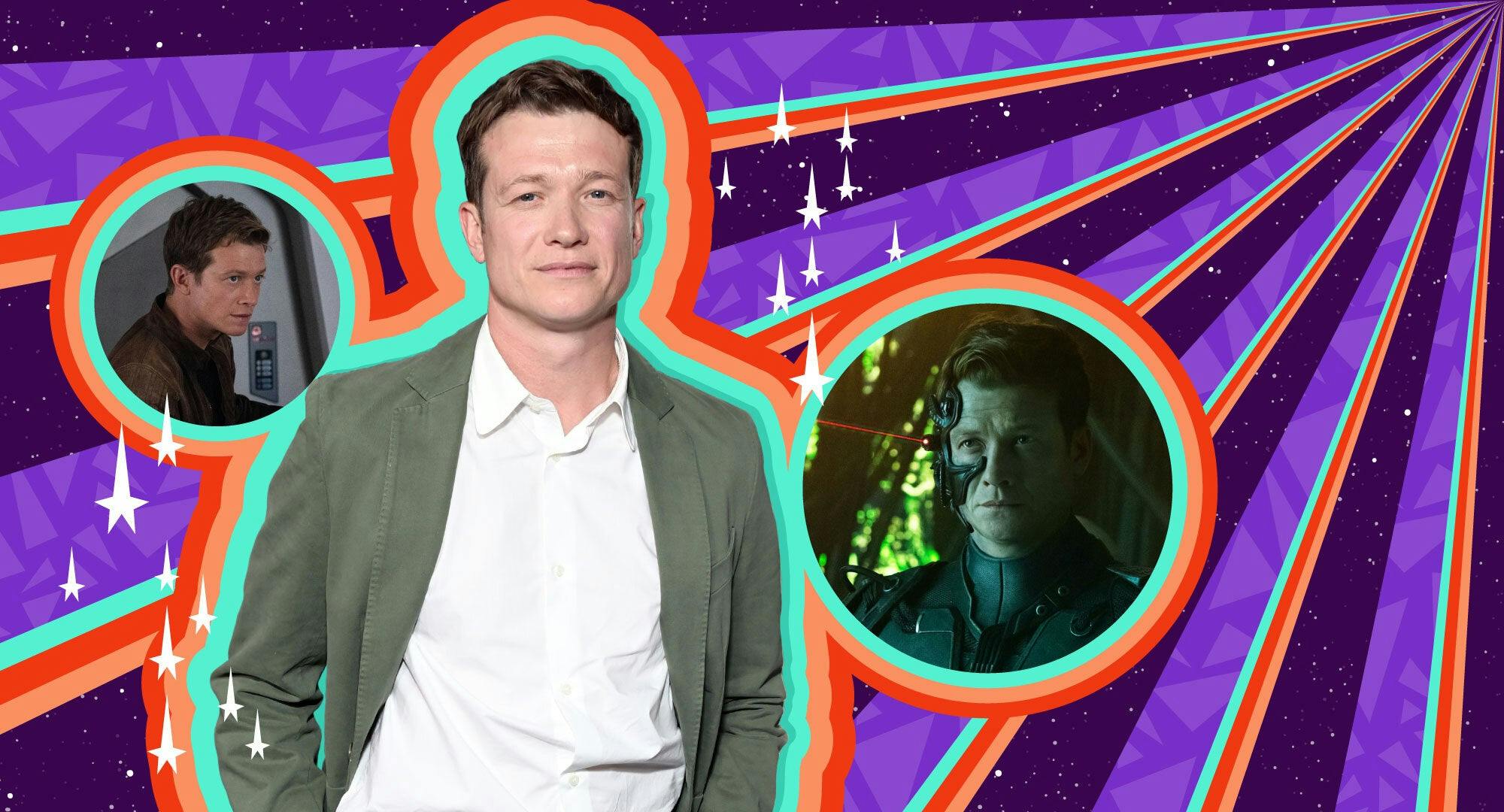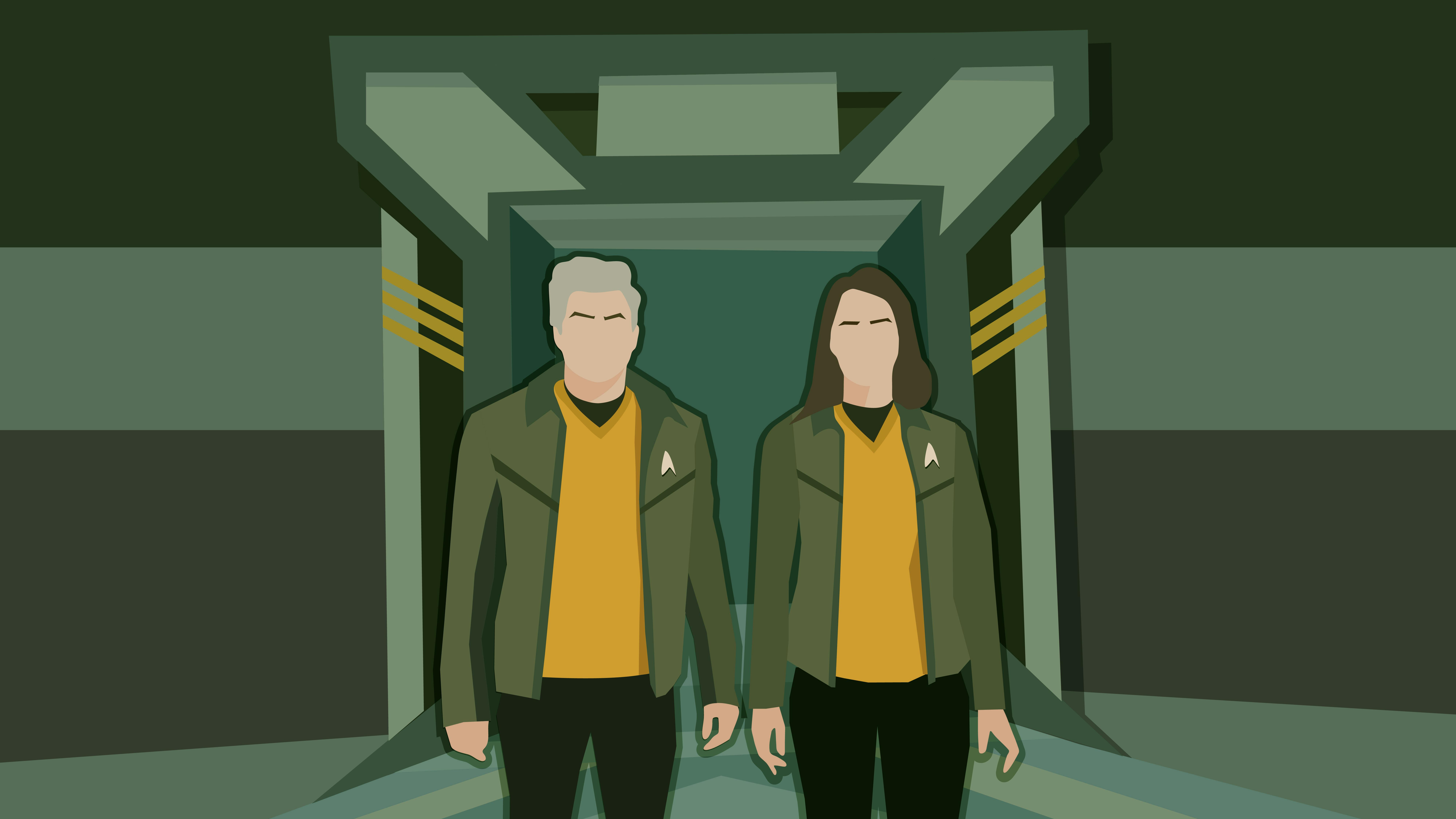Published Oct 10, 2024
Jack Crusher's Trials Mirror the Stigma of Mental Health
For World Mental Health Day, we look to the young Crusher's arc during the third season of Star Trek: Picard.
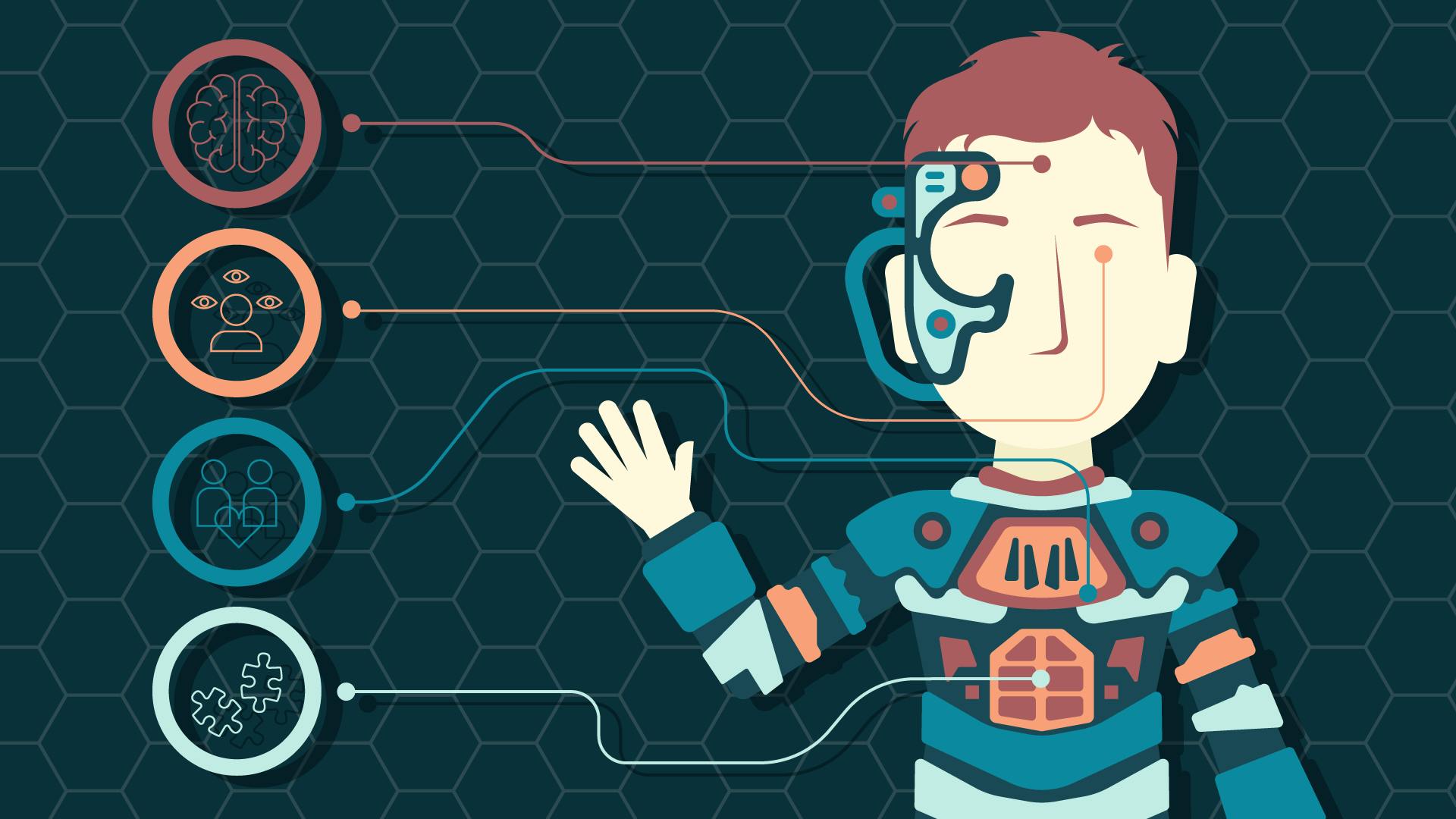
StarTrek.com
As the U.S.S. Titan-A faced off against in , Jack Crusher battled an equally invasive foe — the internal strife that had plagued him since childhood.
While his haunted visions were eventually traced back to genetic alterations which inflicted upon Jack's father, Jean-Luc Picard, during , Jack's emotional journey throughout Season 3 mirrored the trauma endured by people with mental health conditions, especially in terms of the stigma surrounding the topic. Jack's sense of isolation, hesitance to share his burden, self-blame, need for professional help, and relationship with his loved ones all significantly resemble mental health-related struggles.
With the caveat that I can only speak from my personal experience when it comes to mental health, let's explore the extent to which Jack's Borg-inspired sensations correlate to the very real symptoms of mental health issues.
A Sense of Isolation

"The Last Generation"
StarTrek.com
When the in "," she described an "unimaginable loneliness" that she and Jack had both sustained. Jack corroborated those feelings of isolation on multiple occasions, such as when he told Picard that he had always felt as if he was "different" in "" and "." As the Titan-A sought refuge at the Fleet Museum in "," Jack waxed poetically to Seven of Nine and observed, "We all long for connection. But we're just a little bit alone, aren't we? Stars in the same galaxy, but light-years between us." While Jack spoke of a general loneliness in that instance, it was clear that he was speaking from a deeply personal experience.
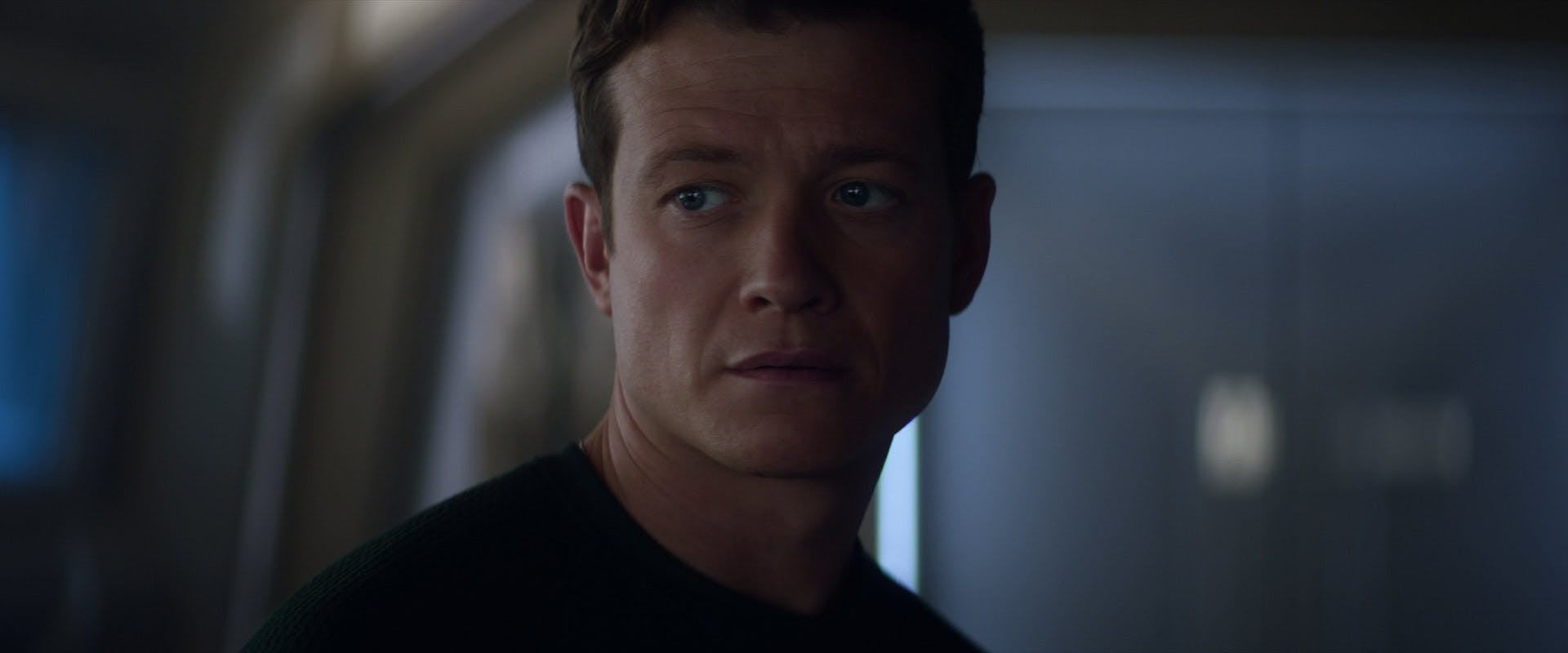
"Imposters"
StarTrek.com
There are a wealth of mental health conditions, each of them with their own symptoms and burdens. In turn, individuals will be subjected to varying levels of severity even when they are diagnosed with the same affliction. However, isolation and believing oneself to be set apart from society are relatively common traits among people with such ailments, particularly given the stigma associated with discussing mental health which persists even to this day. An inability to connect with others and the thought that you are the only person with this malady can be tremendous blows to one's psyche, resulting in a reflexive need to separate yourself from people. Jack exhibited such self-preservation in "," attempting to project confidence by asserting, "Being on the outside — it suits me fine."
A Silent Burden
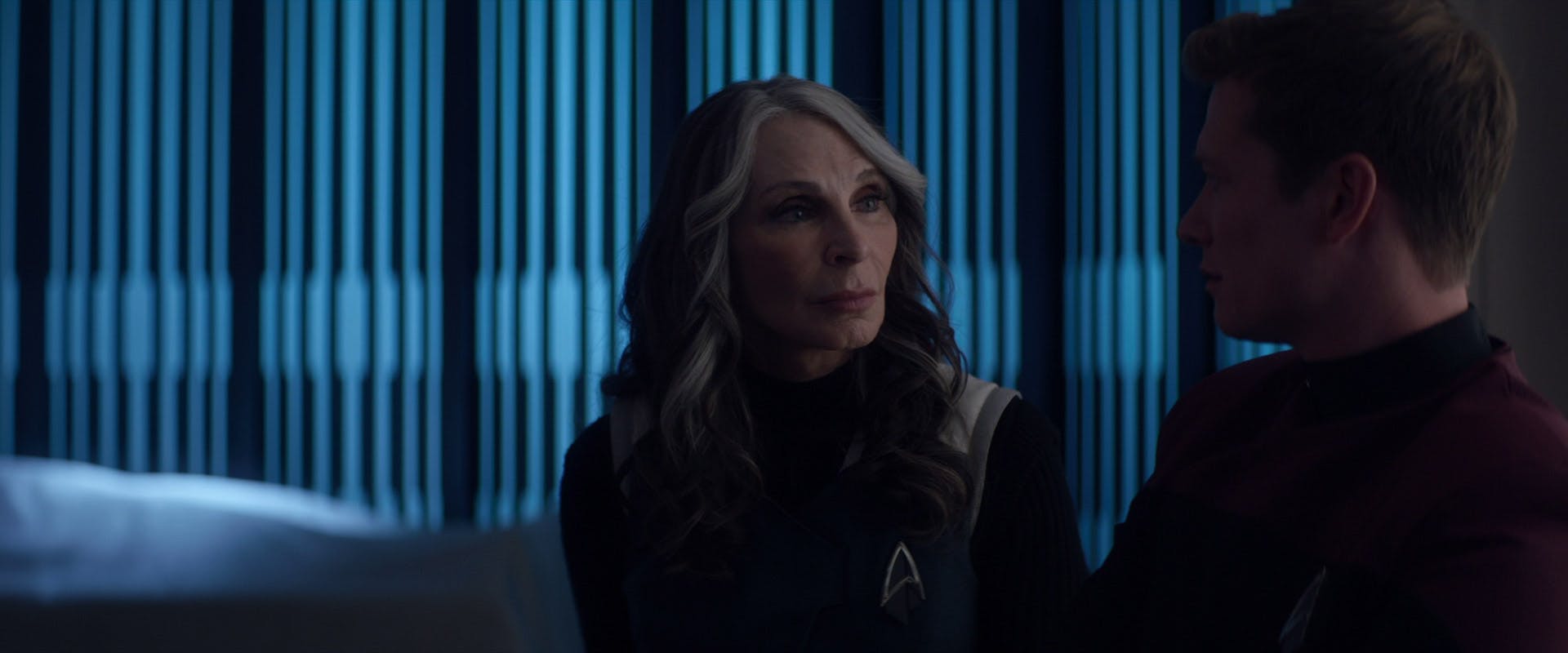
"Imposters"
StarTrek.com
Although Jack's waking nightmares and visions of red root-like structures enveloping the space around him intensified during his early days on the Titan-A, it was not until after he had killed four disguised as Starfleet officers, in "," that he mustered the strength to inform his mother, Dr. Beverly Crusher, about the distressing sights and sounds. Taking the leap to confide in her, Jack bravely confessed, "I think there's something very wrong with me." As liberating as that announcement was for Jack, he opted not to relay his subsequent discovery that he could control the actions of certain crewmembers. Upon finally conveying this ability to his parents in "," Jack insisted that they swear to him before he would dive into the details of his very personal admission.
Hesitance to talk about their situation is a familiar burden to people with mental health concerns, as shame and embarrassment can manifest from the stigma surrounding the subject. This reluctance may be amplified when it comes to sharing with those dearest to us, as they are the very people we do not want to drive away. Yet, when we do summon the courage to discuss our mental states, loved ones tend to be the first ones we open up to, just as Jack did when he spoke to his mother.
Furthermore, when Jack reported his lifetime of "practicing the art of charismatic deflection" to Deanna Troi in "Surrender," he illustrated an additional path regularly taken to avoid chatting about mental health. If we don't get close to people in the first place, we won't feel pressured to divulge our emotional state to anyone.
Self-Blame and Denial
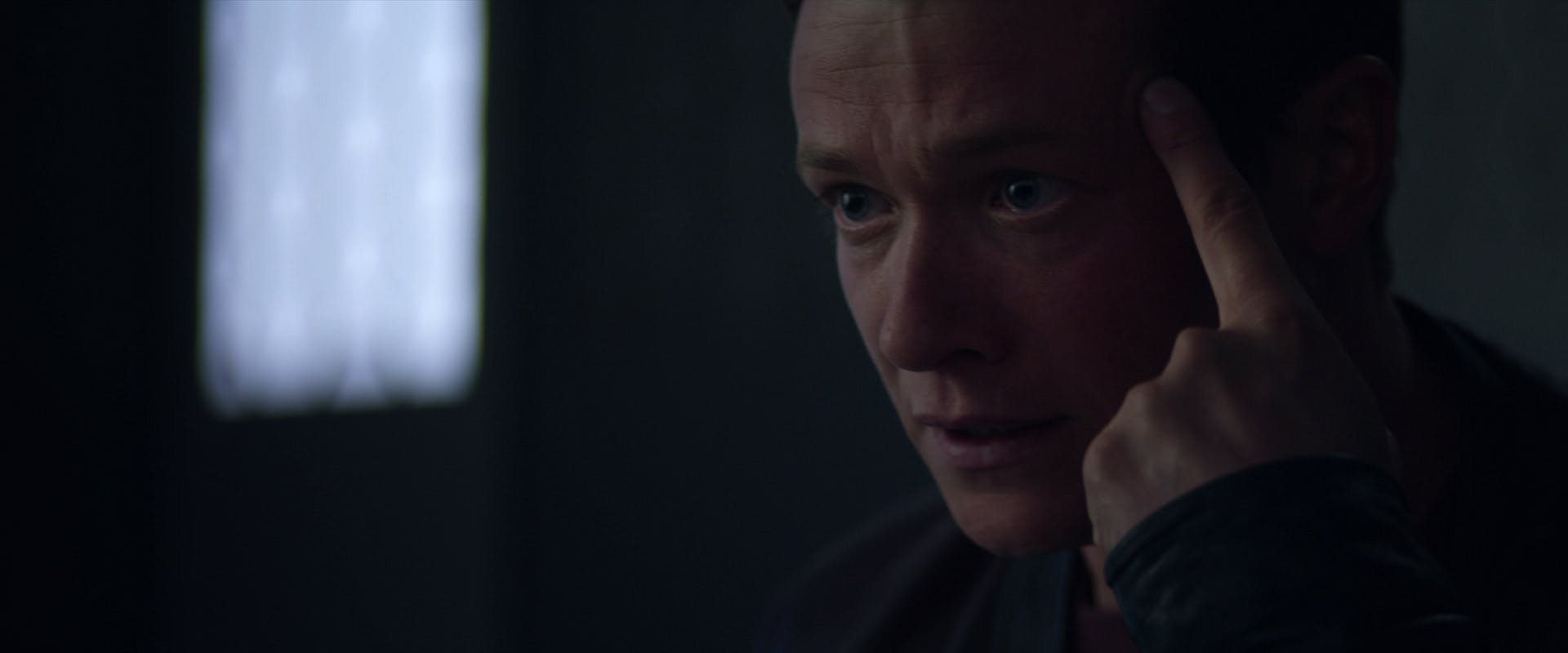
"Vōx"
StarTrek.com
In one of Picard's most heartbreaking moments, Jack responded to the news of his alleged Irumodic Syndrome diagnosis by stating, "Turns out I'm not crazy. No. I'm just broken." Moments later, Jack continued that train of thought in "The Bounty," contemplating how his mother had refrained from introducing him to his father out of a fear of exposing him to Picard's notable foes. "Irony is maybe I was doomed before I was even born," Jack pondered. While the Borg Collective proved to be the actual perpetrator in this case, Jack nevertheless directed the majority of his hopeless frustrations inward. Outwardly, his initial confusion and a perpetual unwillingness to talk over his troubles also exemplified that, though he saw himself as different, part of him was still in denial about his situation.
Condemning oneself for matters out of one's control is also a frequent occurrence for people with mental health woes, as overcoming the belief that one must have done something wrong to deserve the condition can be a problematic pursuit. On the other hand, denial and self-blame are not exclusive to mental health patients, as their loved ones naturally try to shoulder some of the weight themselves.
With this in mind, such proclivities emerged for Jack's parents in "The Bounty," with Beverly acknowledging that she had always assumed her son "was gifted, not plagued with an overclocked brain." Believing Irumodic Syndrome to be in play at the time, Admiral Picard sustained a wave of guilt over passing down a genetic fault to his son.
Seeing a Professional
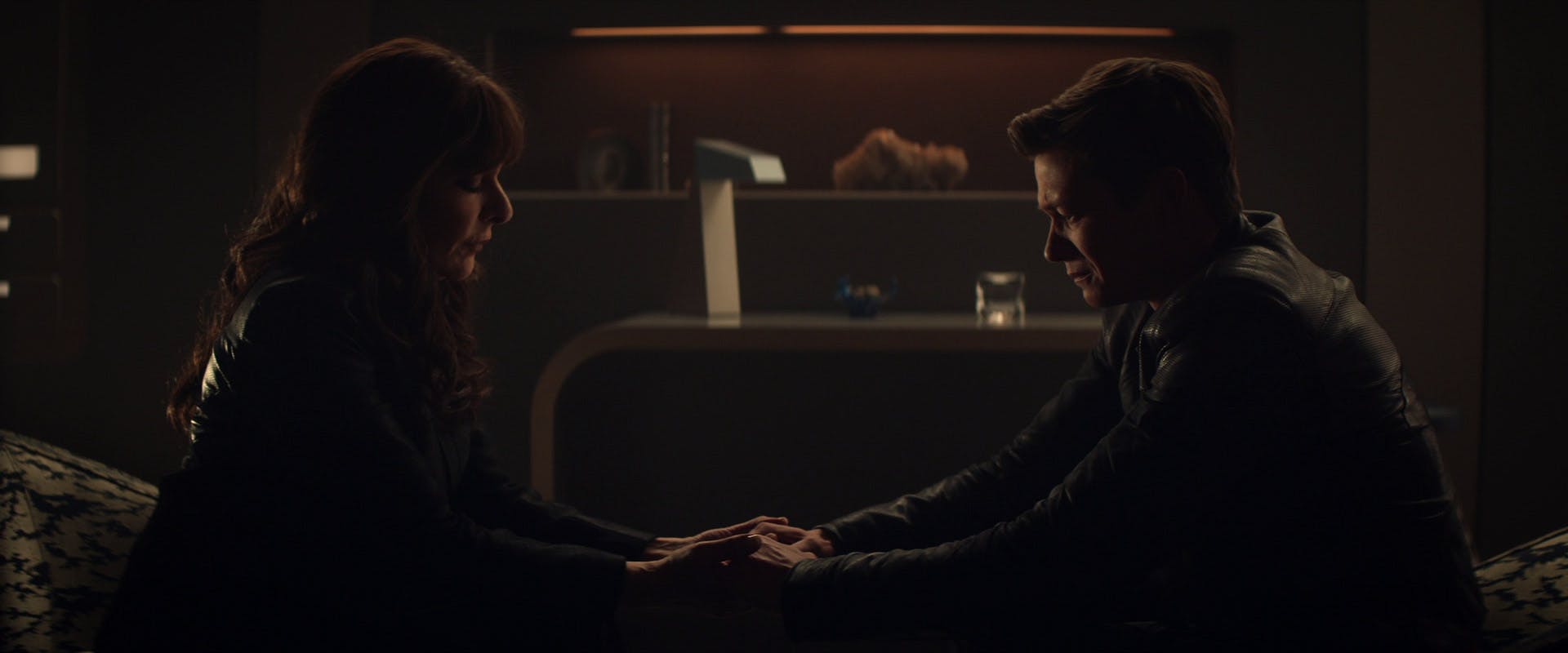
"Surrender"
StarTrek.com
Always ready to channel her empathic nature and expertise as a counselor to benefit a good cause, Deanna Troi commenced an informal session with Jack in "Surrender." Her background afforded her with the knowledge of how to approach the sensitive situation, and she deftly succeeded in getting Jack to open up about the red door in his visions. Jack conceded that he didn't want to open the door as he was "terrified about what's behind it," yet Troi knew exactly how to respond to his uncertainty, assuring him that, "We'll go together. You're not alone." The value of professional help cannot be overstated, especially for people struggling with their mental health, as trained counselors and therapists can guide their patients to stunning breakthroughs and realizations with the same measured demeanor that worked so well for Troi.
Unfortunately, Jack's enraged response to Troi's determination that he was being affected by the Borg also bore similarities to a common reaction to real-life mental health therapy sessions — self-conscious anger. This frustration was evident in "," as Jack emphatically declared, "Everyone has their secrets. Things that they should be allowed to keep to themselves. Not put up on some psychic display."
Moreover, when his father proposed that Jack visit the Keslovar facility on Vulcan, Jack retorted, "It's no academy. It's an institution. A prison where they can mind-meld and lobotomize the Borg from me." Jack's resistance to his diagnosis, as well as the parallel present between Keslovar's reputation and primitive psychiatric treatments of the past, further reflect the extent to which the steps of his emotional journey corresponded to matters of mental health.
The Importance of Loved Ones
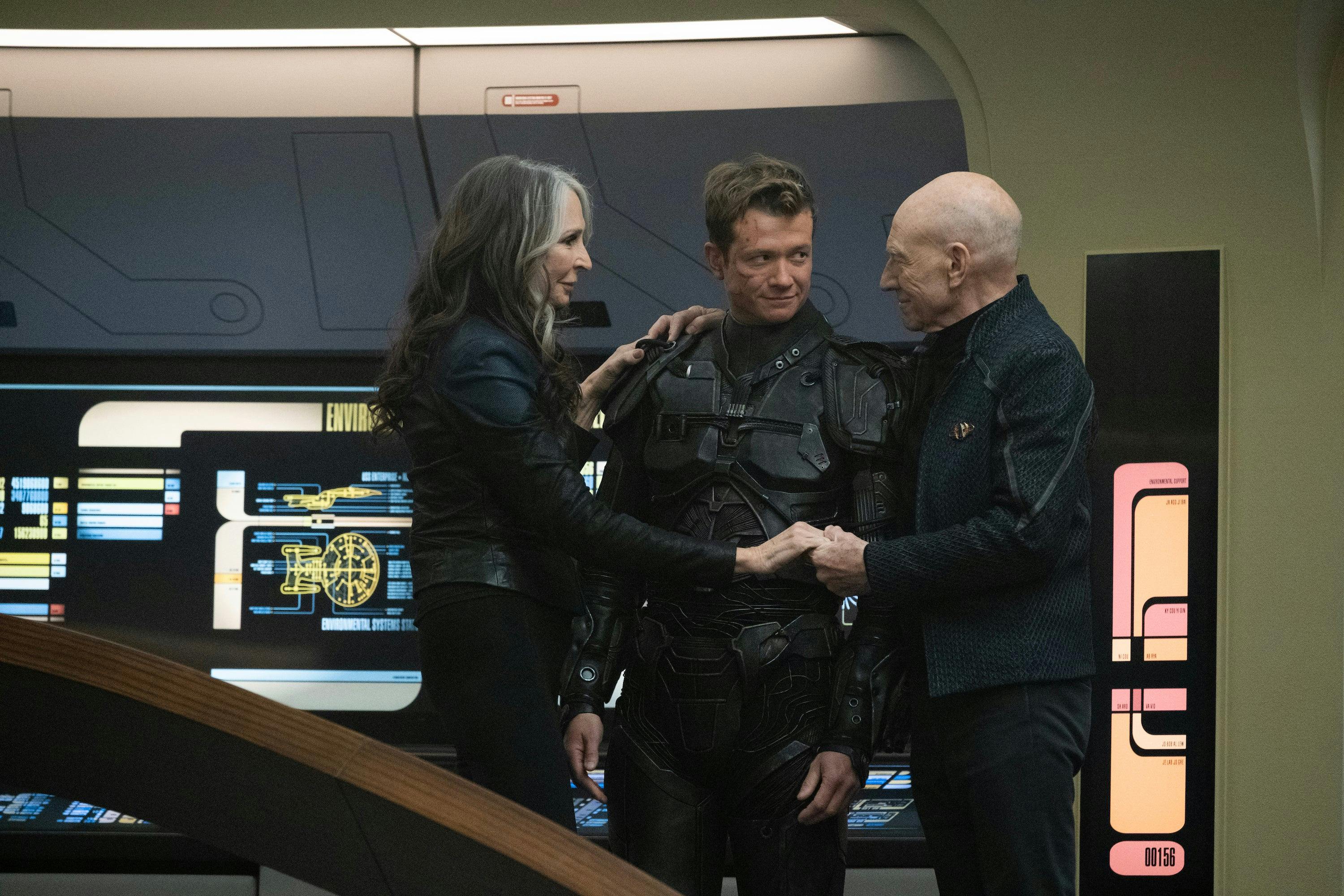
"The Last Generation"
StarTrek.com
In spite of Jack's doubts, his path toward recovery embodied the vital truth that, with professional help and the proper support, people can triumph over tremendous hardships and find happiness in their lives. With his father at his side in "The Last Generation," Jack denounced the Borg Queen's jabs about his impending isolation and defiantly affirmed, "No, I am not alone."
Jack did not just survive his malady, he thrived beyond it, lavishing in the joy of being with his mother and father before ultimately taking his new post aboard the U.S.S. Enterprise-G. That message is key for people facing incredible odds, including those presented with the overwhelming weight of a mental health condition, as it is essential for all to be aware that their ailment does not have to preclude them from having a fulfilling future. After all, when it comes to mental health, knowing that a light at the end of the tunnel exists may be the motivation one needs to take their first step towards finding it.
A Personal Experience
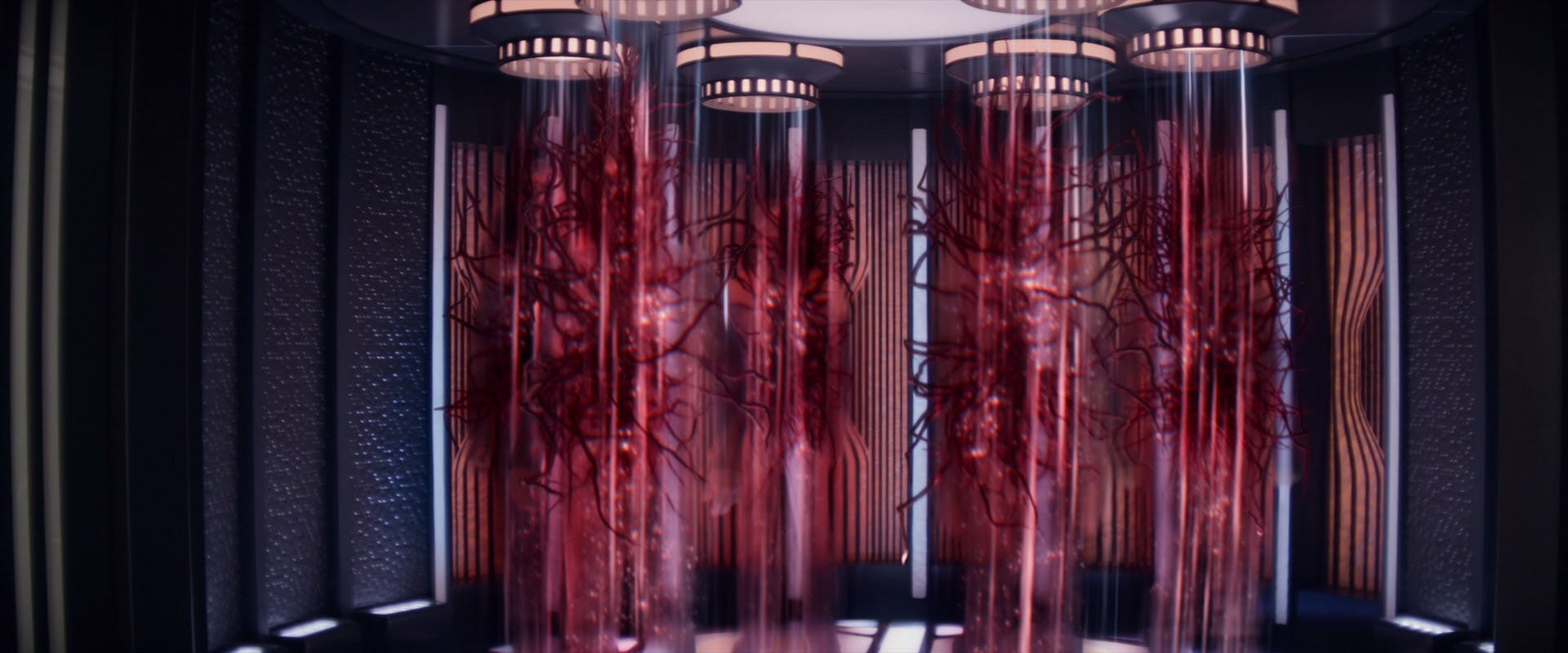
"Imposters"
StarTrek.com
As noted above, with severe obsessive compulsive disorder (OCD). I've written extensively about my case in the last few years, but I want to take a moment to highlight that many of Jack's symptoms have links to that particular condition. For example, OCD is often misdiagnosed as other afflictions, just as Dr. Crusher's scans erroneously pointed toward Irumodic Syndrome as the culprit behind Jack's visions. While I have never witnessed anything resembling hallucinations myself, Jack's inability to distinguish between reality and illusion mirrors OCD in another way. His visions of red roots encasing crew members within the Titan-A's transporter beams in "Imposters" reminded me of OCD's insidious capacity for blurring the lines between genuine memories and their anxiety-induced false counterparts.
Jack also displayed a level of hyper-responsibility that is often associated with OCD. After Captain Riker was captured by the Shrike, Jack insisted that the entire ordeal was his fault and that he should trade himself for Riker's freedom. The urge only intensified in the wake of T'Veen's murder in "Surrender," as the science officer's death at Vadic's hands inspired him to repeat his belief that he needed to turn himself in before anyone else was killed. However, the most crucial connection I've perceived between Jack's Borg-related experiences and my dealings with OCD is one that I've already mentioned — the undeniable fact that professional treatment and a network of loved ones can lead you past your darkest moments and provide you with a course towards peace, healing, and happiness.

